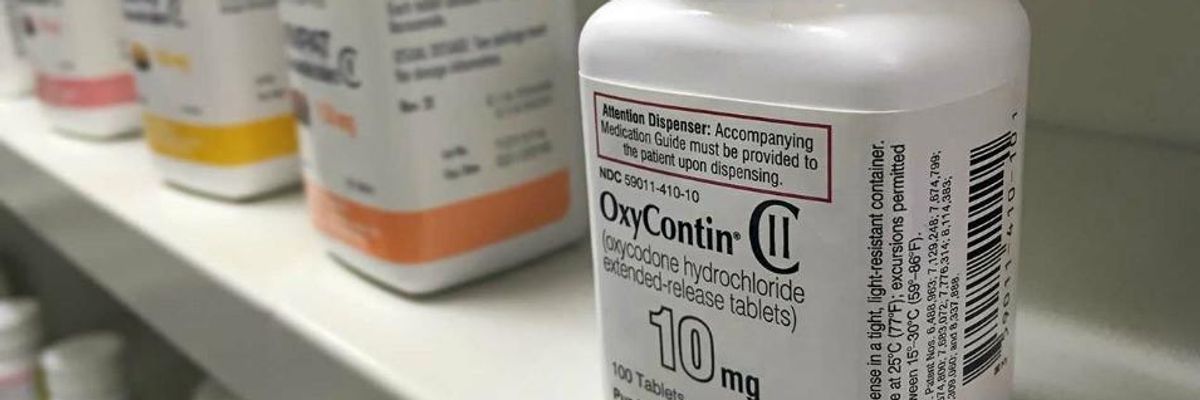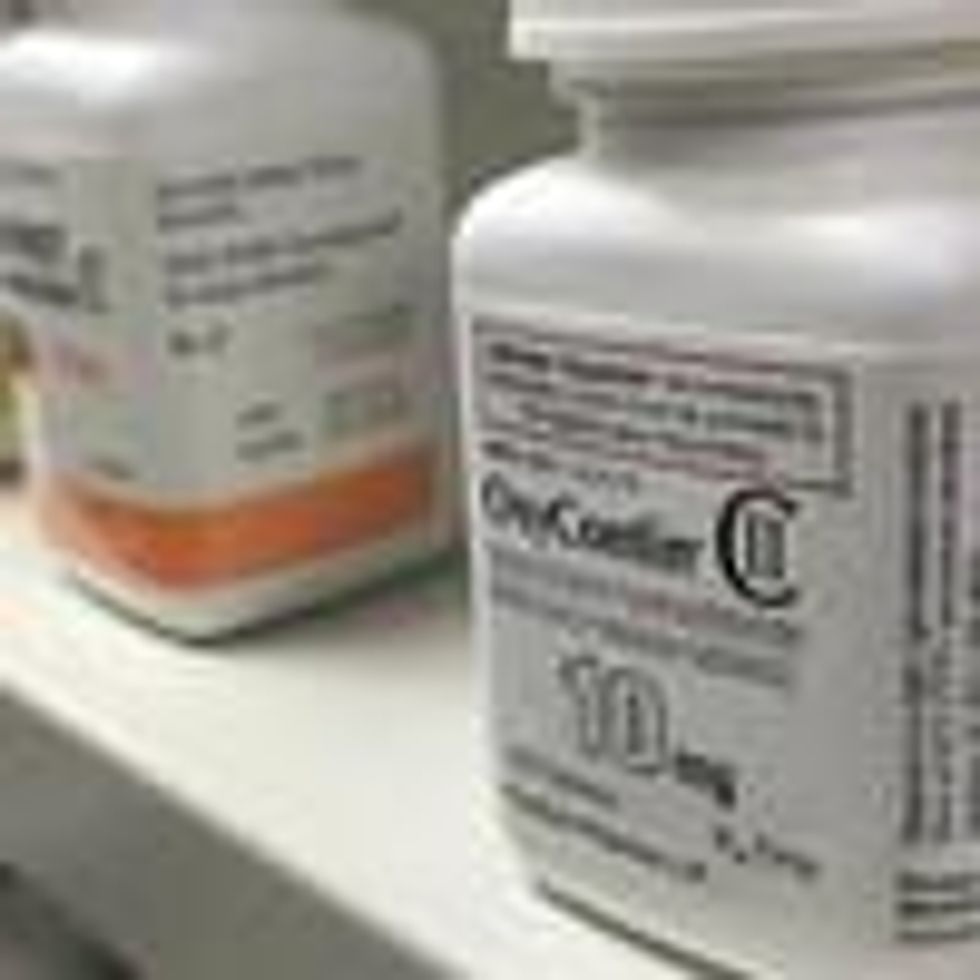A community in West Virginia is planning to appeal a ruling handed down Monday by a federal judge who concluded that three pharmaceutical companies are not liable for the vast damage done to the area by their shipments of millions of opioids.
Cabell County and the city of Huntington argued in court last year that AmerisourceBergen, Cardinal Health, and McKesson had created a "public nuisance" by distributing more than 81 million hydrocodone and oxycodone pills in the area over an eight-year period, saying the companies made no effort to ensure the pills were fulfilling legitimate prescriptions and wouldn't be sold on the black market.
"We are deeply disappointed personally and for the citizens of Cabell County and the City of Huntington."
The volume of pills shipped to the county was enough to distribute 94 pills to every resident per year.
The county and city sought $2.6 billion from the three companies, saying the money was needed to help recover from the opioid epidemic.
An estimated 7,882 people in Cabell County are currently living with opioid use disorder, according to the Williamson Daily News, and communities have been strained by thousands of overdose deaths in recent years. Nearly half of students attending Cabell County schools are being raised by someone other than a parent, and the number of children personally affected by the opioid epidemic as of 2017 was nearly twice the national average.
Emergency workers responded to 1,067 suspected overdoses in the county last year, and 158 overdose deaths were reported.
The county was planning to use $1.7 billion to treat people who currently have opioid use disorders.
Harvard health economics professor Thomas McGuire testified that the companies had actually cost the county $3.3 billion in damages.
Judge David A. Faber, who was appointed by President George H.W. Bush, ruled that the communities did not prove the three companies acted unreasonably when they distributed the pills or that their conduct was connected to the suffering of people throughout Cabell County.
Joel Rainey, a pastor at Covenant Baptist Church in Shephardstown, West Virginia, called the decision "a grave injustice."
Cardinal Health has previously admitted wrongdoing in West Virginia, where the company shipped millions of pills to many small towns over an eight-year period ending in 2014.
McKesson and Cardinal Health sent 12.3 million pills to a small pharmacy in Mt. Gay-Shamrock and nine million pills over just two years to the town of Kermit, home to just 400 people.
Related Content
'Dark and Disturbing' DOJ Report Shows Big Pharma Knew of Opioid Abuse After Releasing Popular Painkiller
Julia Conley
In the Cabell County case, the pharmaceutical giants argued they were simply helping fill prescriptions that were written by licensed doctors and said they were providing "a secure channel to deliver medications of all kinds."
"We are deeply disappointed personally and for the citizens of Cabell County and the City of Huntington," attorneys for the plaintiffs said in a statement. "We felt the evidence that emerged from witness statements, company documents, and extensive datasets showed these defendants were responsible for creating and overseeing the infrastructure that flooded West Virginia with opioids."
Public nuisance claims against opioid manufacturers have been successful in New York and Ohio, where juries ruled that drugmakers used misleading marketing practices and allowed major pharmacies including CVS and Walgreens to flood communities through the black market.
Cabell County and Huntington's lawsuit was the first such claim to be argued in a federal trial. More than 3,000 lawsuits have been filed by state and local governments, Native American tribes, and other groups over the damage done by rampant opioid distribution in recent decades.





